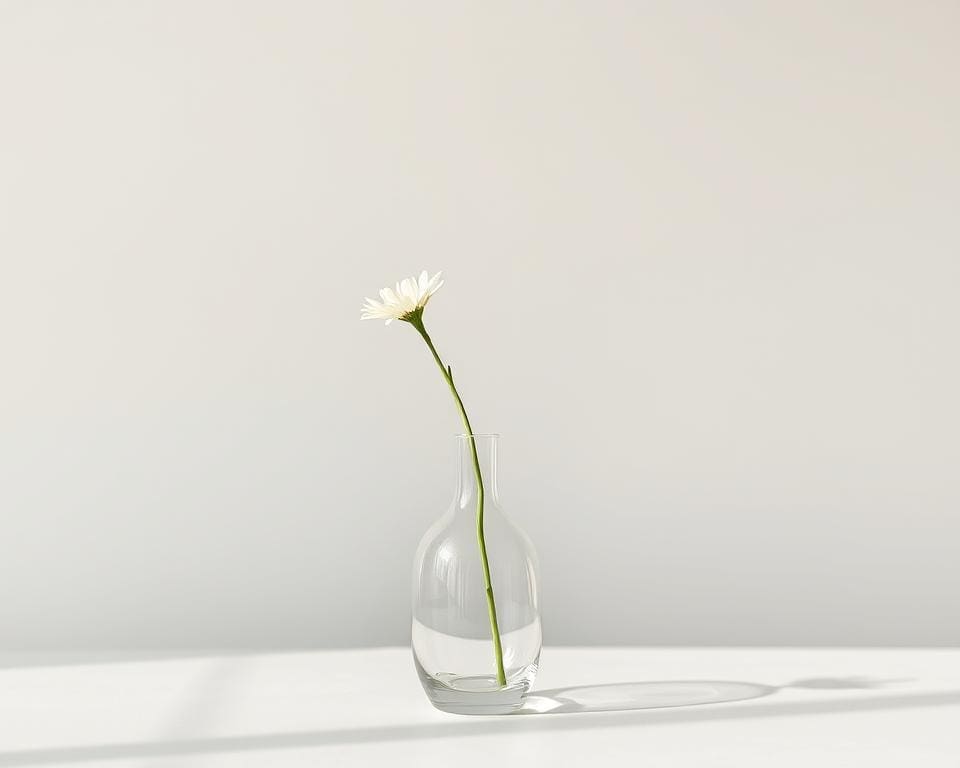In today’s fast-paced world, many of us find ourselves racing against time, overwhelmed by endless to-do lists and responsibilities. However, the notion of minimalism offers a compelling alternative, suggesting that doing less can in fact lead to feeling better and improved well-being. By prioritising quality over quantity, we open ourselves up to a more fulfilling life, where each action carries meaning and significance. This article will explore how a minimalist approach not only enhances productivity but also enriches our experiences, paving the way for greater satisfaction and joy in our daily lives.
The Power of Minimalism in Daily Life
Minimalism serves as a transformative approach to living, where individuals prioritise lifestyle simplicity and intentionality in their choices. This mindset encourages a shift from a cluttered life, allowing for meaningful connections and experiences rather than merely accumulating possessions. Leading advocates like Joshua Becker and Marie Kondo have popularised the practice of decluttering, showcasing how a minimalist lifestyle can pave the way for peace and clarity.
What is Minimalism?
At its core, minimalism is more than just owning fewer items; it’s about creating space for what truly matters. By embracing mindful living, individuals learn to distinguish between needs and wants, making room for personal growth and emotional well-being. This intentional focus transforms everyday surroundings into environments that inspire and uplift.
Benefits of a Minimalist Approach
Adopting a minimalist approach brings numerous benefits of minimalism. These include:
- Increased focus on personal goals and relationships.
- Reduced stress from less clutter and distractions.
- Improved mental clarity, allowing for better decision-making.
- A deeper appreciation for life’s experiences rather than material possessions.
Ultimately, embracing mindful living through minimalism fosters a more fulfilling and harmonious life, where each choice is purposeful and enriching.

Understanding the Concept of Productivity
Productivity remains a vital aspect of personal and professional development. Many individuals equate productivity with busyness, which often leads to misguided priorities. Understanding that effective work focuses on quality over quantity can transform not only outcomes but also perspectives on life. By debunking common productivity myths, one can foster a more meaningful approach to achieving goals.
Quality over Quantity
Prioritising quality over quantity ensures that outcomes reflect effort and intention. Spending more hours on a task does not guarantee better results. A discerning approach encourages individuals to engage deeply with their work, leading to enhanced time efficiency. When quality becomes the primary focus, productivity often flourishes, revealing that effective work is more about meaningful contributions than sheer volume.
Common Productivity Myths
Several productivity myths cloud understanding in this area. A prevalent belief states that the more hours worked, the greater the output. Research shows that this mindset can lead to burnout and diminished returns. Strategies like the Pomodoro Technique emphasise focused intervals of work followed by breaks, enhancing time efficiency. The Eisenhower Matrix aids in prioritising tasks based on urgency and importance, debunking the myth that all tasks deserve equal attention. Embracing effective work practices can revolutionise one’s approach to productivity, fostering a healthier and more balanced lifestyle.
Could doing less help you feel more?
Living in a world that constantly demands our attention can lead to overwhelming stress. Engaging with too many commitments and clutter often clouds our minds, taking a toll on our emotional well-being. Research from reputable institutions, such as the American Psychological Association, highlights the strong psychological impact that one’s environment has on mental health. Focusing on stress reduction can create a serene space, enabling greater clarity and peace.
The Psychological Impact of Reduced Stress
Embracing a lifestyle with minimal effort allows individuals to focus on what truly matters, paving the way for a more fulfilling existence. The psychological impact of reduced stress cannot be overstated. As clutter diminishes, so too does the pressure associated with managing it, prompting feelings of relief and contentment. The benefits of stress reduction can manifest in improved moods and enhanced productivity, creating a cycle of positive reinforcement that fuels emotional well-being.
Finding Joy in Simplicity
In a world fixated on excess, finding joy in simplicity becomes a profound act of rebellion. Individuals who intentionally simplify their lives often report a renewed sense of purpose and happiness. Simple pleasures—like enjoying a walk in nature, reading a book, or spending time with loved ones—can deliver immense satisfaction, overshadowing the need for more elaborate experiences. The joy in simplicity reflects a deeper understanding that true fulfilment often lies in appreciating the little things.
Mindfulness: A Pathway to Feeling Better
Mindfulness serves as a powerful tool for cultivating a rich and meaningful life. Embracing mindfulness practices allows individuals to enhance their present moment awareness, bringing about significant benefits for overall mental health. Engaging in such techniques can transform mundane tasks into opportunities for self-care, promoting a deeper sense of connection to oneself and the world.
Practices for Mindfulness in Everyday Tasks
Incorporating mindfulness into daily activities can be both simple and transformative. Consider the following practices:
- Mindful Eating: Focus on the flavours, textures, and sensations as you consume each bite, creating a profound appreciation for your meal.
- Mindful Walking: Take notice of each step and your surroundings, being aware of the ground beneath your feet and the sights and sounds around you.
- Mindful Dishwashing: Pay attention to the feel of the dishes, the warmth of the water, and the rhythm of your actions as you wash the plates.
The Connection Between Mindfulness and Self-Care
The integration of mindfulness into self-care routines enhances the benefits of the latter. Living in the moment allows for greater reflection on personal needs, ultimately enriching one’s self-care practices. Acknowledging thoughts and feelings without judgement fosters better understanding and acceptance, which is essential for mental health. Jon Kabat-Zinn, a pioneer in mindfulness, emphasises that true self-care starts with recognising and honouring your present experience.
Smart Time Management Strategies
Mastering time management is essential for achieving a harmonious work-life balance. By prioritising tasks effectively, individuals can manage their daily responsibilities without feeling overwhelmed. This section delves into practical strategies that facilitate better organisation and productivity.
Identifying Priorities
Effective time management begins with identifying what truly matters. Recognising the difference between urgent and important tasks allows for better decision-making. Consider the following methods for prioritising tasks:
- The Eisenhower Matrix: Classify tasks into four categories based on urgency and importance.
- ABC prioritisation: Assign letters A, B, or C to tasks to indicate their priority level.
- Daily goal setting: Establish a limited set of objectives to focus on each day.
Tools for Effective Time Management
Utilising productivity tools can significantly enhance time management efforts. The right software can streamline task organisation and optimise efficiency. Consider these effective strategies:
- To-Do Lists: Keeping track of tasks ensures nothing falls through the cracks.
- Trello: This visual tool aids in managing projects and collaborating with teams.
- Asana: This platform helps in monitoring progress and assigning responsibilities.
Incorporating these strategies not only boosts productivity but also reinforces a sense of accomplishment and control over one’s time.
Integrating Self-Care into Your Routine
In a world that often values busyness over well-being, integrating self-care into your routine is crucial for maintaining mental health. Taking breaks should be seen as essential rather than optional. Research from the World Health Organisation highlights that rest is vital for cognitive function and emotional resilience. Implementing simple self-care practices can help even those leading busy lives to cultivate self-compassion and improve overall well-being.
The Importance of Taking Breaks
Taking breaks is not just a luxury; it serves as a necessary reset for the mind and body. Regular pauses throughout the day can enhance productivity and creativity, enabling individuals to return to their tasks refreshed and focused. Recognising the significance of rest can lead to improved mental health and a greater sense of fulfilment.
Self-Care Practices for Busy Lives
Finding time for self-care can seem daunting, yet small changes can lead to significant results. Here are a few practices that can easily be woven into daily routines:
- Short walks: Stepping away from your work for even a few minutes can boost your mood.
- Digital detoxes: Setting aside your devices can create space for mindfulness and genuine connection.
- Breathing exercises: Simple techniques can quickly alleviate stress and ground you in the present.
Integrating these practices encourages self-compassion, reminding individuals that it is okay to prioritise their own well-being amidst the hustle of life. By making self-care a natural part of your routine, you can foster a healthier balance and enhance your overall quality of life.
Stress Reduction Techniques
In today’s fast-paced world, adopting effective stress management techniques is crucial for maintaining a balanced life. Simple strategies can significantly impact one’s overall well-being and foster emotional resilience. By integrating these practices into daily routines, individuals can experience the long-term benefits of stress reduction.
Simple Strategies for Stress Management
Several straightforward methods can help in managing stress effectively. Consider incorporating the following techniques into your daily life:
- Deep Breathing: Engaging in deep breathing exercises can calm the mind and body, promoting a sense of tranquillity.
- Yoga: This ancient practice not only enhances physical flexibility but also nurtures emotional strength and clarity.
- Journaling: Writing down thoughts and feelings provides an outlet for self-expression and can help clarify the mind.
- Nature Walks: Spending time outdoors can significantly reduce stress levels and improve mood.
Long-Term Benefits of Reducing Stress
Embracing these stress reduction techniques can lead to numerous long-term benefits. Consistent practice of these wellness strategies can enhance emotional resilience, making it easier to navigate life’s challenges. Research indicates that a lower stress level is correlated with improved physical health, including a stronger immune system and better heart health. As individuals learn to manage their stress effectively, they open the door to a more fulfilled and content life.
The Journey to a More Fulfilling Life
Embarking on the journey to a more fulfilling life often begins with the choice to embrace simplicity. By actively engaging in this process, individuals can uncover pathways for personal growth that lead to profound transformations. The act of prioritising what truly matters allows for a more meaningful existence, where the focus shifts from accumulation to appreciation.
Lifelong learning plays a vital role in this journey of self-discovery. Each experience adds depth and insight, nurturing our understanding of ourselves and the world around us. Together with mindfulness practices, these elements encourage us to cultivate a deeper connection with the present moment, fostering an environment where fulfillment can flourish.
As you navigate this path, remember that the quest for a fulfilling life is not solely about the milestones we achieve but how we integrate simplicity into our daily routines. By doing less, we create space to explore our inner selves and ultimately, to feel more. Commit to actionable steps that align with your personal values, and allow the beauty of simplicity to guide you toward a richer, more fulfilling experience.









